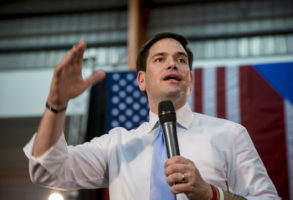Published August 18, 2015
It’s worth noting that Walker was not the only candidate to take up health care today. In an op-ed for Politico, Marco Rubio offered the outlines of his own approach. He had already done so (in the context of the King v. Burwell case) in another op-ed back in March, and what he lays out today doesn’t really go into greater detail, but it suggests more to come, and sets forward an attractive general proposal.
Its basic logic is very similar to Walker’s, and to what most conservatives have had to say about health care reform in recent years, but a key difference is his treatment of the tax exclusion for employer-provided insurance. Rubio would gradually phase out that exclusion over a decade, and the universal tax credit he would offer in its place would grow each year as the maximum value of the exclusion declined.
That probably trades some political viability for a stronger market orientation—changing the system through which most Americans get health coverage (and changing it more and more each year for a decade) but creating a larger individual consumer market much more quickly. The trade may well be worth it if it doesn’t make the approach politically unsustainable. We’ll have a better idea as the Rubio campaign puts out more details.
This approach, along with Walker’s and with Bobby Jindal’s ambitious proposal, mean the 2016 field is already home to the most serious and substantive health care debate we’ve seen among Republican presidential aspirants. And there are surely more to come.








